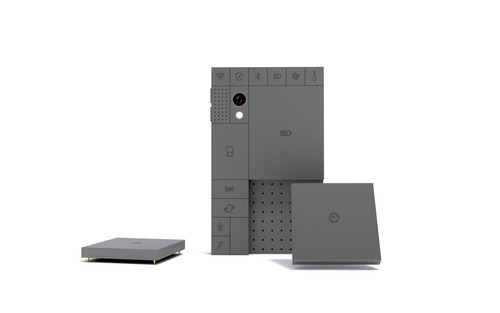
Image source: http://www.newintech.net/
Phonebloks is a visionary phone concept created by the Dutch designer, Dave Hakkens, as a response to the increasing amount of electronic waste brought about by rapid technological advancement. It has made waves through the social media ever since its first Thunderclap introduction way back 2011 and has now gained over 900 thousand supporters (plus a partnership with Motorola!).
 |
| Image Source: https://phonebloks.com/ |

Image Source: http://assets.inhabitat.com/
To answer this dilemma, Hakkens thought of setting up a modular platform that can significantly reduce the amount of e-waste with the addition of having the satisfaction to personalize our items to fit our own specifications. Hence, he designed each phoneblok to come with a handset made up of detachable modules--much similar to legos--which he then called bloks. The idea is, if one blok happens to deteriorate, or if the owner for example, decides to have a faster processor, a better camera, or a new component for his smart phone, all that needs to be done is to remove the faulty blok and replace it with a new piece. This way, he gets to keep the rest of the functioning bloks without throwing away the whole unit altogether.

 |
| Image Source: http://thenextweb.com/gadgets |
Despite its promising marketability, the future phone concept is not without a handful of criticisms; one of which came from John Brownlee (a writer for the business media website known as the FastCompany) who called the idea nothing but impractical and a 'pipe dream' for several points:
Image Source: http://www.fluid-studio.net/

Image Source: http://jobmob.co.il/
2. "PHONEBLOKS WOULD INCREASE E-WASTE, NOT ELIMINATE IT." Phones break and that is a fact. May it be through an accidental slip or an unfortunate flush, human error is one of the most common reasons why we have to replace them.
The Phonebloks concept would take the human error factor that ruins so many smartphones and multiply it with every module. As users constantly pry modules off, replacing them and switching them around, there's just a million ways a Phonebloks smartphone could break that an integrated smartphone is not susceptible to (Brownlee, 2013).

Whichever side you are on, the emergence of this future phone concept just proves that we are becoming more responsible as we start to think in account for the future. Humans have gone a long way from pigeons, to snail mail, to dinosaur phones, up to the current ultra-chic touch phones in the market; so much that we can't deny how all the 20 million tons of rubbish is the price we pay for being social animals. Yes, phonebloks definitely has its pitfalls and it may take years to actually develop a successful prototype, but the impact left by the idea such that it created a ripple of other ideas on how immediate the issue of planned obsolescence in communication should be addressed, is perhaps, the real gauge of its success--and with that, I congratulate Dave Hakkens.
Just in case you are wondering, here is the latest progress made by Motorola as of October, 2013. I must say, not so much of a pipe-dream now, wouldn't you agree? :)



Image Sources: http://mashable.com/2013/10/29/motorola-project-ara/ and http://qzprod.files.wordpress.com/
Sources:
Brownlee, John. (2013). Why lego design principles don't work on smartphones. FastCompany. Web. http://www.fastcodesign.com/3017409/why-lego-design-principles-dont-work-on-smartphones. Date Retrieved: December 29, 2013.
McNicoll, Arion. Phonebloks: The smartphone for the rest of your life. (2013). CNN: BluePrint. Web. http://edition.cnn.com/2013/09/19/tech/innovation/phonebloks-the-smartphone-for-life/. Date Retrieved: December 29, 2013.
Phonebloks Team. What is phonebloks? (2013). Web. http://news.phonebloks.com/post/66725983279/what-is-phonebloks. Date Retrieved: December 29, 2013.Brownlee, John. (2013). Why lego design principles don't work on smartphones. FastCompany. Web. http://www.fastcodesign.com/3017409/why-lego-design-principles-dont-work-on-smartphones. Date Retrieved: December 29, 2013.
McNicoll, Arion. Phonebloks: The smartphone for the rest of your life. (2013). CNN: BluePrint. Web. http://edition.cnn.com/2013/09/19/tech/innovation/phonebloks-the-smartphone-for-life/. Date Retrieved: December 29, 2013.
Phonebloks Team. What is planned obsolence? (2013). Web. http://news.phonebloks.com/post/70397678723/what-is-planned-obsolescence-here-at. Date Retrieved: December 29, 2013.
Schroeder, Stand. (2013). Project Ara Motorola makes your smartphone modular. Mashable. Web. http://mashable.com/2013/10/29/motorola-project-ara/. Date Retrieved: December 30, 2013
0 comments